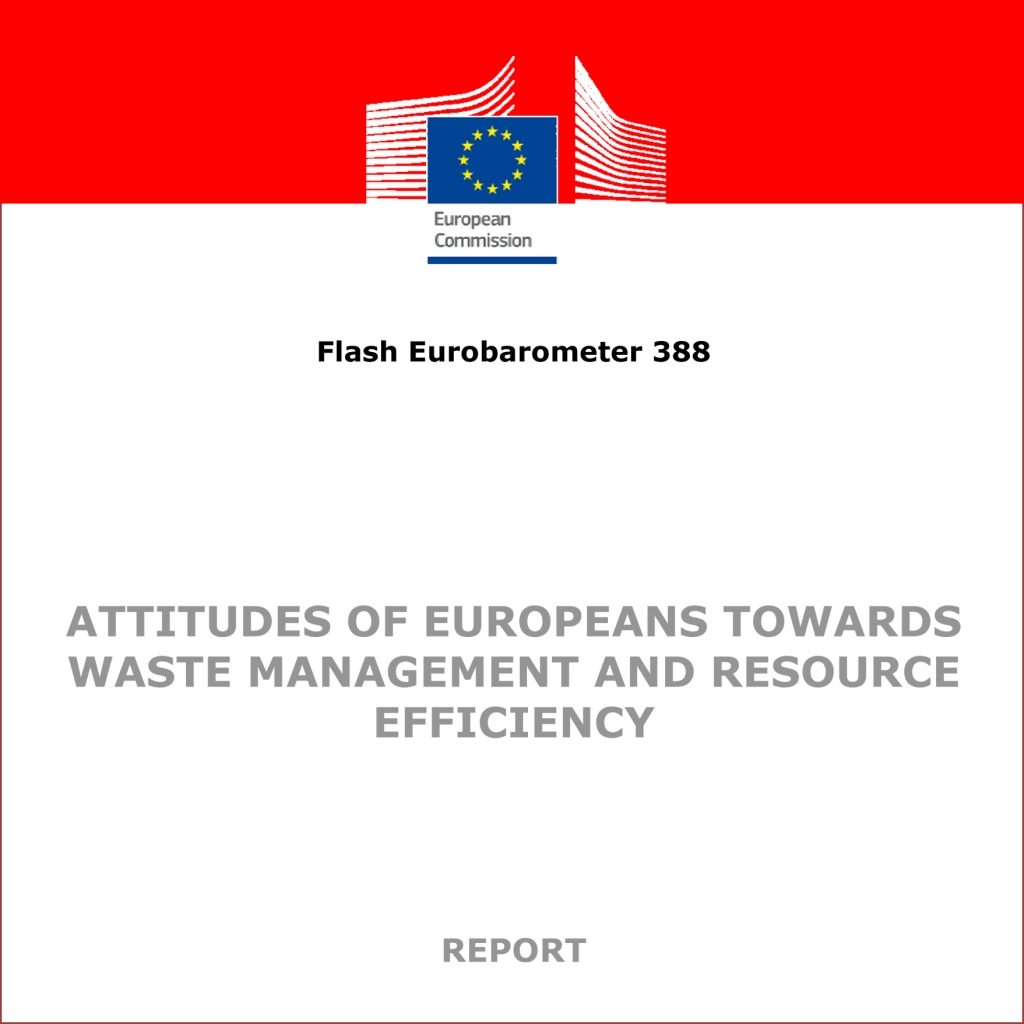Conducted by TNS Political & Social at the request of the European Commission, Directorate-General for the Environment
GIUGNO 2014
co-ordinated by the European Commission, Directorate-General for Communication
Resource efficiency and waste management are key elements of EU environmental policy and the Europe 2020 strategy. It is essential to get a clear picture of citizens’ attitudes on these topics, throughout all Member States, in order to better guide policy making in these fields.
This survey seeks to understand citizens’ perceptions, attitudes and practices related to efficient use of resources, generation and management of waste, as well as elements of the so-called “circular economy” (including second-hand products and alternatives to buying new products).
The first chapter of the report provides an overview of the issue of European resource management: how important is it that Europe uses its resources more efficiently? What impact would a more efficient use of resources have on quality of life, economic growth, and employment opportunities? Finally, which actions should be prioritised to improve the efficient use of resources?
The second chapter is divided into two parts: waste generation and waste management. The first part deals with the amount of waste generated by respondents and the actions they take to reduce that amount. It also deals with the amount of food
waste generated by households, and the possible solutions to reduce it. The second half of the chapter analyses the household waste management practices of respondents and the initiatives that might convince them to separate their waste.
The third chapter focuses specifically on one common type of household waste – plastic – as well as on littering in general. It first looks at respondents’ attitudes towards plastic waste and litter, before evaluating the extent of the litter problem in the respondents’ own area. Potential ways to reduce littering and support for EU-level targets to reduce marine litter are also evaluated in this chapter.
The fourth and final chapter of the report addresses the “circular economy”: durable or recyclable products, maximal use of products, repairing instead of discarding, etc. More specifically, this chapter deals with the most important factors when buying a durable product, as well as the main perceptions of second-hand products. Finally, it focuses on emerging alternatives to buying new products, like remanufactured, rented or shared products.
English
